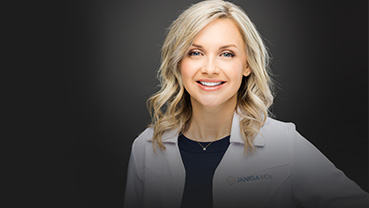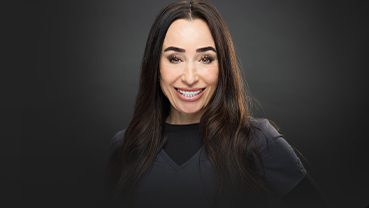What are Acne Scars?
Acne can be caused by many things, including the buildup of oil, debris, and dead skin cells in the skin. It’s an unfortunate condition that most people struggle with as a teenager and some even long into adult life. The long-term effects of frequent acne breakouts can take a toll on some patients when it results in acne scarring, which can result in poor skin texture long after the skin has cleared.
There are many sub-categories of acne scars, but they generally fall into two main types: atrophic, which are caused by an under-production of collagen as the skin heals itself; and hypertrophic, which are caused by an over-production of collagen. These are generally caused by deep-set, inflammatory acne that causes damage to the surrounding skin. Fortunately, laser resurfacing or radio-frequency resurfacing are effective at treating acne scars in a majority of patients.

Who is a Good Candidate for Acne Scar Treatments?
Many suffer from acne, especially as they’re going through adolescence. Even taking the best possible care of your skin can still result in scarring from the presence of acne. Candidates for acne scar treatments at Janiga MDs are those who have visible scarring on their face or neck. Ideally, you would also not have current moderate to severe acne, as scar treatments may not have much effect. Your specific treatment will depend on how deep the scarring is.
The Procedure
Radiofrequency and laser skin resurfacing works by selectively injuring the skin to jump-start the skin’s healing process and collagen production to improve the damaged tissue. They also remove some of the affected surface skin to immediately trigger your skin’s remodeling functions and reveal a new layer of skin for fast-acting results. Laser skin resurfacing and dermal stimulation can be effective for many skin conditions but is one of the preferred methods to correct acne scars with long-term results.
Prior to your procedure, your face will be cleaned thoroughly by our specialists, and the area of treatment will be numbed by using a local anesthetic. These treatments to treat acne scars typically take between 30 minutes and two hours, depending on the size of the targeted region and the level of intensity that you and Dr. Jennifer Janiga or her associates agree upon.
Results & Recovery
Radiofrequency and laser resurfacing treatments can be done at variable settings target specific types of scar tissue in different parts of the skin. Lower settings allow for one to two days of recovery, while higher settings mean you’ll need about five to seven days to recover. Your provider can recommend the right setting for your intended results, which can depend on how severe your acne scarring is, as well as whether you have depressed acne scars, atrophic acne scars, or both.
Dr. Janiga or her associates will instruct you on how to best care for your skin during the healing process, which includes avoiding sun exposure for a few weeks after each treatment session. Most patients with acne scarring require a package of treatments for the best results, and they can recommend a treatment plan for you that may include other skin treatments along with laser resurfacing, such as chemical peels.
Frequently Asked Questions about Acne Scarring
Is laser resurfacing worth it for acne scars?
Can you do laser resurfacing on active acne?
Does acne come back after laser treatment?
What is the best age for laser resurfacing?
How long does acne laser take to heal?
Schedule A Consultation
Ultimately, the best way to determine your ideal acne scar treatment package is through a consultation with Dr. Janiga or her associates, who can evaluate you and your skin’s needs. To set up a consultation in our Reno dermatology and cosmetic office, schedule a consultation online or call 775-364-0224.








